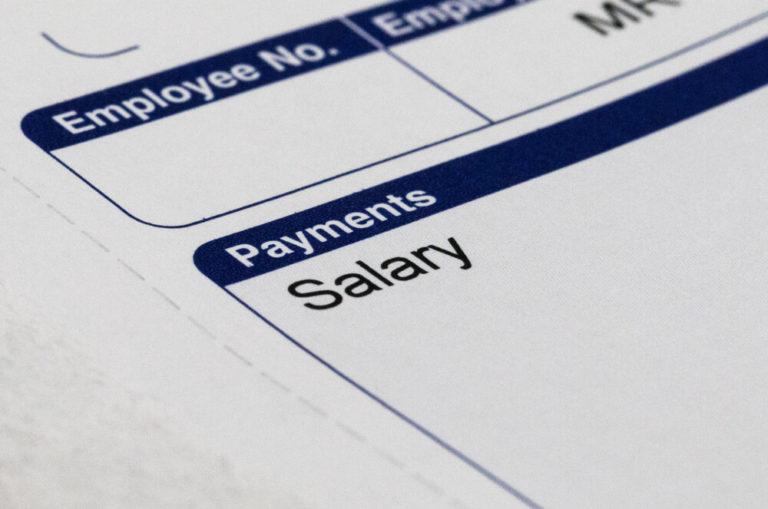
In Scotland, wages arrestment is a legal process that allows creditors to recover outstanding debts directly from a debtor’s earnings. If you find yourself unable to repay debts and facing the possibility of wages arrestment, it is essential to understand the process and its implications on your financial circumstances.
Start your FREE debt assessment
Over 35,000 people helped in Scotland? Start your journey here
As a debtor, it is crucial to know your rights and the limits imposed on creditors when enforcing wage arrestments. This includes the minimum amount of income that can be protected, the maximum percentage that can be deducted, and the necessary legal procedures to follow. Being well-informed about the wage arrestment process in Scotland enables you to take the right steps to protect your financial well-being and potentially negotiate better repayment arrangements.
In this article, we aim to provide you with a thorough understanding of Scotland’s wage arrestment process, as well as your rights and responsibilities as a debtor. With this knowledge, you can confidently navigate the complexities of debt repayment and avoid further financial pitfalls.
Basics of Wages Arrestment in Scotland
In Scotland, wages arrestment is a form of diligence used by creditors to recover unpaid debts. This process involves the deduction of a portion of your earnings directly from your employer until the debt is repaid. If you’re facing wage arrestment, it’s crucial to understand the basics and your rights in this situation.
Sheriff officers are responsible for carrying out earning arrestments by serving an earnings arrestment order on your employer. Before this occurs, a creditor must have obtained a court decree or have relied on the summary diligence procedure.
To initiate a wages arrestment, a creditor must follow these specific steps before any deductions can be made:
- Obtaining a court decree or using the summary diligence procedure.
- Serving a 14-day Charge for Payment notice on you.
- If the debt remains unpaid, serving the earnings arrestment order on your employer.
Deductions are made based on a specific calculation to ensure you retain a reasonable amount of your earnings. The amount deducted depends on your net earnings (after tax and National Insurance). Here’s a brief breakdown of the deductions:
| Net Earnings | Deduction Percentage |
|---|---|
| Up to £529.90 | 0% |
| £529.91 – £1,059.80 | 19% |
| £1,059.81 – £1,589.70 | 23% |
| Over £1,589.70 | 50% |
The deductions are also subject to a protected minimum balance of £529.90 per pay period, which means you will never lose more than the specified percentages above for any earnings exceeding that amount.
However, it’s essential to note that wage arrestment cannot be applied to certain benefits, such as disability benefits, Child Tax Credits or Working Tax Credits. Additionally, your employer is legally obliged to comply with the earnings arrestment orders and cannot refuse or dismiss you for this reason.
If you find yourself facing wage arrestment, seeking professional advice from a debt advisor or a solicitor is highly recommended. They can inform you of your rights and help you explore alternative options for dealing with your debt in Scotland.
Legal Procedure and Relevant Parties
When you’re dealing with wages arrestment in Scotland, it’s essential to understand the legal procedure and the relevant parties involved. In this section, we’ll walk you through the process and highlight the key entities.
The court plays a significant role in the wages arrestment process. A wages arrestment is a result of a court order issued by a sheriff court due to unpaid debts. The process commences with the creditor pursuing payment for outstanding debts.
Before a court order is issued, the creditor must obtain a decree (judgement) from the sheriff court. To initiate this process, the creditor usually hires a solicitor to represent their interests. Upon receiving the decree, the next step is to serve a charge for payment to the debtor. A charge for payment is a formal, legal document that gives the debtor 14 days to settle their debts.
If the debtor fails to repay the debt in the given time, the creditor can instruct a sheriff officer to enforce the court order by administering an earnings arrestment. The sheriff officer has the authority to seize the debtor’s wages directly from their employer to repay the outstanding debt.
The key parties involved in the wages arrestment process include:
- Creditor – The individual or organisation that the debtor owes money to.
- Debtor – The individual who owes money to the creditor.
- Sheriff court – The court responsible for issuing the decree and court order.
- Solicitor – The legal representative of the creditor.
- Sheriff officer – The enforcement agent who carries out the arrestment of wages.
It’s crucial to be aware of the legal procedure and relevant parties in the wages arrestment process in Scotland. Remember that different entities have specific roles, such as the creditor initiating the process, the sheriff court issuing the court order, and the sheriff officer enforcing the arrestment. Understanding these parties’ role will help you navigate the process and ensure your rights are protected during the wage arrestment proceedings.
Impact and Process of Wages Arrestment
Wages arrestment, also known as earnings arrestment, is a legal process in Scotland where your creditor can instruct your employer to deduct a specific amount directly from your earnings in order to repay your outstanding debts. This section will discuss the impact and process of earnings arrestment, providing valuable information for both employees and employers.
When a creditor decides to use earnings arrestment, they must first serve you with a Charge for Payment. This is a final demand for payment, giving you 14 days to settle your debt. Failure to fully pay the outstanding amount within this period may lead to the creditor proceeding with the earnings arrestment order.
Upon receipt of a Deductions from Earnings Order, your employer is legally obliged to calculate the amount to be deducted from your earnings and make the specified payments to your creditor. The deductions will be made from your net earnings (after tax and National Insurance) and follow a specific table of percentages based on your earnings. For example:
| Weekly Income | Deduction Percentage |
|---|---|
| £0 – £122.28 | 0% |
| £122.29 – £442.12 | 3% |
| £442.13 – £664.50 | 5% |
| £664.51 – £884.99 | 6% |
| £885 or more | 6.5% |
It is crucial to be aware that the process of earnings arrestment might have some adverse effects on your financial situation and employment status. Depending on the size of your outstanding debt and your earnings, the deductions might impact your ability to meet your ongoing financial obligations. In addition, your employer might consider the arrestment an administrative burden or a sign of financial instability, potentially affecting your career prospects.
In certain situations, creditors can join forces and issue what is called a Conjoined Earnings Arrestment. This is when multiple creditors pursue earnings arrestment for a single debtor. Although the total amount deducted remains the same as if it were a single creditor, the payments collected by your employer are shared between the creditors in a proportional manner.
The impact and process of wages arrestment involve steps like obtaining a Charge for Payment, calculating the appropriate deduction amount based on earnings, and considering the potential consequences on your financial and employment status. Being aware of your rights and obligations during this process can help you navigate the intricacies of wages arrestment in Scotland.
Financial Structures and Calculations
When dealing with wages arrestment in Scotland, it’s crucial to understand the financial structures and calculations involved. In this section, we will provide you with essential information concerning tables, percentages, and other necessary calculations. By understanding these elements, you will be better equipped to handle your financial situation.
It’s common for the court to use a specific table to determine the appropriate amounts that can be taken from your earnings. This Earnings Arrestment Schedule considers various factors, such as your net earnings and allowance. Net earnings are your total income after taxes and other deductions, while allowance refers to the minimum sum you’re allowed to retain for your living expenses.
Based on the Earnings Arrestment Schedule, the percentage of your net earnings that can be taken will be determined. It looks like this:
| Weekly Earnings | Deduction Rate |
|---|---|
| Up to £122.28 | 0% |
| £122.29 – £442 | 19.3% |
| £442.01 – £664.50 | 23% |
| £664.51 – £1,095.33 | 33% |
| £1,095.34 and above | 50% |
To determine your deduction, you will need to assess your daily, weekly, or monthly earnings. For example, suppose you earn £480 weekly. The table indicates that your deduction rate is 23%. Therefore, the amount to be taken is £110.40 (£480 * 0.23). The remaining amount, £369.60, becomes your funds to cover living expenses.
It’s essential to note that all deductions should be rounded down to the nearest whole penny when calculating the actual amounts. Additionally, if you receive any special allowances, such as a disability living allowance, these are also taken into consideration when determining how much of your earnings can be garnished.
Understanding the financial structures and calculations behind wages arrestment in Scotland is crucial for managing your situation. Being knowledgeable about the Earnings Arrestment Schedule and the various factors influencing your net income will help you remain on top of your financial obligations and avoid any unpleasant surprises.
Debt Management and Assistance
When facing wage arrestment in Scotland, it’s important to be aware of the various debt management options and assistance available to you. This will enable you to make informed decisions and potentially alleviate some of the financial stress.
Firstly, the Debt Arrangement Scheme (DAS) is a government-backed programme that allows you to repay your debts over a longer period. Under a DAS, all interest, fees, and charges are frozen, and it prevents creditors from taking any further legal action against you. To set up a DAS, you’ll need to seek debt advice and apply for a Debt Payment Programme (DPP) through an approved money adviser.
For more severe debt problems, you may consider bankruptcy or sequestration. This is a legal process in which your assets are used to repay as much debt as possible, and the remaining unsecured debts are written off. However, bankruptcy is a serious step that may impact your access to future credit and employment opportunities. You will need to apply for a Bankruptcy Restriction Order (BRO) and a Debt Advice and Information Package (DAIP) from the Accountant in Bankruptcy (AiB) before proceeding with this course of action.
Another potential solution is a Protected Trust Deed (PTD), which is an arrangement between you and your creditors, overseen by a trustee, for repaying part of your unsecured debts over a set period – typically four years. At the end of this period, any remaining debt is discharged. To enter a PTD, you need to have at least £5,000 in unsecured debt and consult with a trustee.
If you’re experiencing temporary financial difficulty, such as an illness or loss of income, a Time to Pay Order or Time to Pay Direction may be suitable. This allows you to negotiate a repayment plan with your creditors over a specific period. The application needs to be done before any legal judgement is made against you.
It’s also worth exploring statutory moratorium options, which can provide you with temporary relief from creditor actions for a six-week period. This should give you enough time to consider the best course of action and seek professional debt advice if needed.
Its crucial that you explore the various debt solutions available to you and seek professional advice. Don’t hesitate to contact organisations such as Citizens Advice Scotland or your local authority for support and assistance with your debt problem. Remember that there is help available, and taking the appropriate steps can improve your financial situation in the long run.
Specific Considerations and Exceptions
When dealing with wages arrestment in Scotland, it’s essential to understand specific considerations and exceptions that may apply to your situation. This information will help you to navigate the process more effectively and confidently.
First, let’s discuss some important income sources that are exempt from arrestment. These include:
- Statutory Sick Pay
- Disablement Pension
- Payments from the Child Maintenance Service
- Some benefits from the Department for Work and Pensions
It is crucial to be aware of these exemptions, as they ensure that your essential income remains untouched during the arrestment process.
In certain cases, regulations may offer you protection from arrestment. For example, if you have a summary warrant for council tax arrears, a local authority cannot arrest your wages. This protection extends to any owed money to credit unions connected with the local authority.
If you are a member of the armed forces, special protections apply to your wages. They can only be arrested if your commanding officer believes that your debt (such as from council tax, rent arrears, etc.) should be repaid.
Next, let’s discuss how various types of financial institutions interact with wage arrestments. Credit unions are often more approachable than traditional banks. A credit union may choose not to apply for an arrestment if they see potential for working out a repayment plan directly with you.
Meanwhile, banks may have more rigid policies, and your bank account could be arrested in some cases. However, banks must follow strict guidelines which ensure that essential expenses, like utilities and food costs, are not affected.
Finally, it’s important to be aware that certain enforcement actions may take precedence before wage arrestments happen. Your local authority or the Department for Work and Pensions might apply a direct earnings attachment (DEA), which takes priority and must be paid before any other deductions from your wages.
Understanding the specific considerations and exceptions in the wages arrestment process is essential to protect your income and navigate this complex legal area. Armed with this knowledge, you are better equipped to handle any wage arrestment scenario that may arise.





